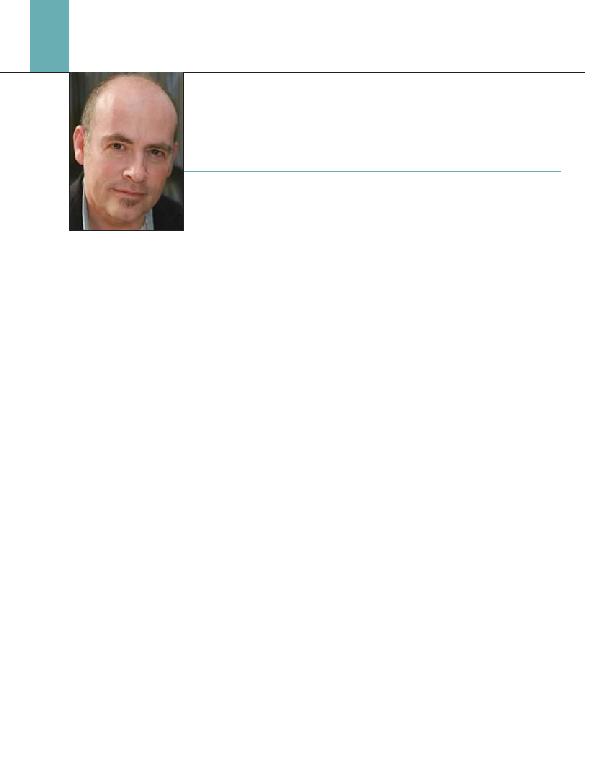
months and set new resolutions or get moti-
vated to actually follow through on past ones.
How did you do with the ones I offered you
last year? I gave you practical tips to break old
writing habits and replace them with produc-
tive ones -- how to find more time to write,
how to limit procrastination and how to re-
energize so your script gets finished.
you. You come up with an idea or two, get
excited, start developing them into an out-
line, but as soon as you start writing, you re-
alize they weren't that original.
outline writing the first draft -- are just the
details.
idea would pop up on the screen? Or your
creativity would suddenly turn on?
be forced. But there are ways to become
more creative. In fact, we're all creative. It's
just a matter of accessing your subconscious
mind, which is easier when you're relaxed
and not thinking about it.
hopefully, come up with that original idea
write a script or two this year.
writing using a timer or asking "what if?"
questions. Here are 11 more tips for 2011:
into the creative zone.
frees your mind to be more creative, if you
follow the same routine every morning, it
will become such a habit that you'll go on
creative auto-pilot much in the same way
that you can come up with ideas when
you're in the shower, shaving, driving, gar-
dening or cooking. The mind takes a break
and is free to roam around your subcon-
scious. As Leo Tolstoy said, "Regularity is the
prime condition for work."
lenging your brain and developing new con-
nections: Do something you've never done
before -- take up a new hobby. Go camping.
Expose yourself to art beyond movies and
television. Listen to new music genres. Read
random magazines you never knew existed.
Instead of driving to work, take the bus or
even bicycle, if possible. Go out to lunch
with different people. Go on vacation to
someplace new. Learn to play a musical in-
strument. Change your writing environ-
ment. It's all about shaking things up. As
where no one else has ever been. You have
to leave the city of your comfort and go into
the wilderness of your intuition. What you'll
discover will be wonderful. What you'll dis-
cover is yourself."
two concepts thought to be unrelated, try
combining old ideas. They don't have to be
film ideas, as in X meets Y, or combining
film genres or icons, though this technique
seems to be in vogue these days -- see Cow-
boys & Aliens, Abraham Lincoln: Vampire
Hunter, Pride and Prejudice and Zombies, etc. It
can be combining character types with time
periods, locations with plot types or situa-
tions with themes. The more disparate the
two items seem to be, the better.
know what it is. Do you want to come up with
an original idea for a film, a TV show, a play,
a novel, a short film? If it's a feature film, what
genre, sub-genre or type? When Christopher
Nolan was developing Inception, he knew it
would have a lot of exposition. So he had to
think up the perfect story type for it. When
he thought of the "heist" film type, it set
everything in motion. Once you choose a
genre and sub-genre or type, make a list of the
10 best films in that genre and think of how
you can come up with something unique